Women's HEALTH AWARENESS MONTH
WELCOME TO KERRYANNS BEAUTY OCTOBER NEWSLETTER. This month we are discussing WOMEN'S health, taboo subjects, tips & tricks on how to care for your body and offer our support. continue reading to keep up with kerryanns.
MEnopause & Perimenopause
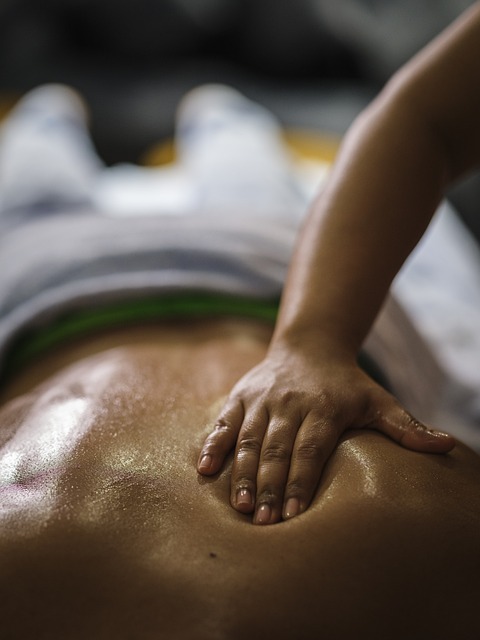
Regular Massage and Facials help your physical and mental well being. Prices vary from £45-£65. Treatments can be adapted to each client.
Menopause is when your periods stop due to lower hormone levels. It usually affects women between the ages of 45 and 55, but it can happen earlier. It affects anyone who has periods. Menopause can happen naturally, or for reasons such as surgery to remove the ovaries (oophorectomy) or the uterus (hysterectomy), cancer treatments like chemotherapy, or a genetic reason. Sometimes the reason is unknown. Perimenopause is when you have symptoms of menopause but your periods have not stopped. Perimenopause ends and you reach menopause when you have not had a period for 12 months. Menopause and perimenopause can cause symptoms like anxiety, mood swings, brain fog, hot flushes and irregular periods. These symptoms can start years before your periods stop and carry on afterwards. Menopause and perimenopause symptoms can have a big impact on your life, including relationships and work. There are things you can do to help with symptoms. There are also medicines that can replace the missing hormones and help relieve your symptoms.
Eating well, exercising and looking after your mental wellbeing can help with symptoms during perimenopause and menopause.
- Get plenty of rest, including keeping to regular sleep routines (recommended 6/7 hours)
- Eat a healthy diet, calcium-rich food like milk, yoghurt and kale to keep bones healthy
- Exercise regularly, try including weight-bearing activities where your feet and legs support your weight like walking, running or dancing
- Do relaxing things like yoga, go for regular massage/facials
- Talk to other people going through the same thing, like family, friends or colleagues
- Talk to a doctor before taking herbal supplements or complementary medicines
'A Woman's health is her capital'
- Harriet Beecher Stowe.
Polycystic ovaries contain a large number of harmless follicles that are up to 8mm (approximately 0.3in) in size. The follicles are underdeveloped sacs in which eggs develop. In PCOS, these sacs are often unable to release an egg, which means ovulation does not take place. It's difficult to know exactly how many women have PCOS, but it's thought to be very common, affecting about 1 in every 10 women in the UK. If you have signs and symptoms of PCOS, they'll usually become apparent during your late teens or early 20s.
They can include:
- irregular periods or no periods at all
- difficulty getting pregnant as a result of irregular
- ovulation or no ovulation
- excessive hair growth (hirsutism) – usually on the face, chest, back or buttocks
- weight gain
thinning hair and hair loss from the head - oily skin or acne
Hirsutism is a very common symptom of pcos. Hirsutism is linked to hormones called androgens. It can happen if the level of these hormones increases or if your body becomes more sensitive to them. Waxing can help remove the hair and over time will reduce the appearance of hair growth.
Polycystic ovaries
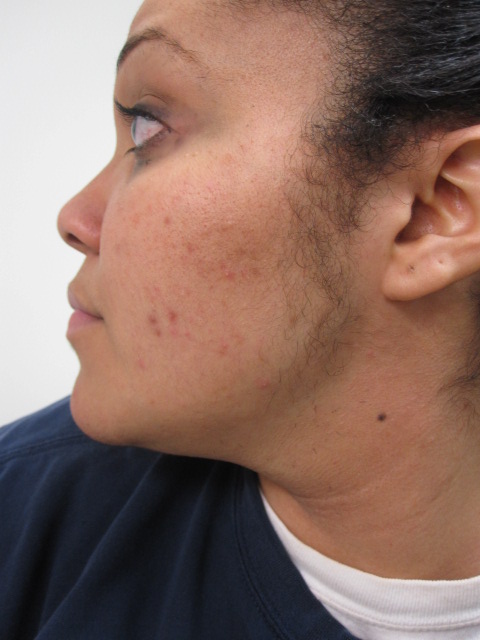
endometriosis
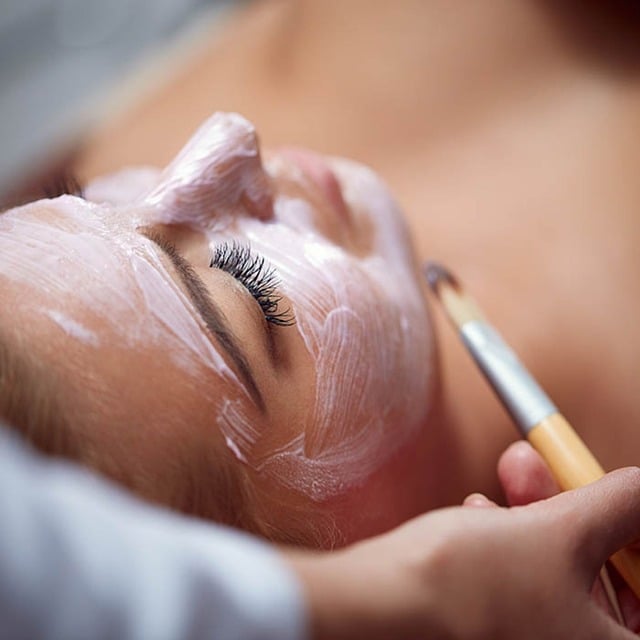
Endometriosis is an often-painful condition in which tissue that is similar to the inner lining of the uterus grows outside the uterus. It often affects the ovaries, fallopian tubes and the tissue lining the pelvis. Rarely, endometriosis growths may be found beyond the area where pelvic organs are located. Endometriosis tissue acts as the lining inside the uterus would — it thickens, breaks down and bleeds with each menstrual cycle. But it grows in places where it doesn't belong, and it doesn't leave the body. When endometriosis involves the ovaries, cysts called endometriomas may form. Surrounding tissue can become irritated and form scar tissue. Bands of fibrous tissue called adhesions also may form. These can cause pelvic tissues and organs to stick to each other. As endometriosis is a full-body disease that can manifest itself in many ways, it’s not surprising that the disease might be affecting our skin. Ranella Hirsch, MD, a board-certified dermatologist in Boston, explains that it’s believed that endometriosis can impact the skin in a number of ways, and with a few conditions. Some common skin issues are Prolonged Hormonal breakouts, Rosacea, Eczema and Hives. We have a number of different facials that can be altered to suit any skin type. Book a consultation with one of our therapists today.
Puberty in females usually begins between the ages of 8 and 13 years. It can last for several years. Puberty happens at different times for different people. These changes can happen quickly for some people and slowly for others. You will start puberty at the right time for your body. This may be different from your friends or other females in your family. If you haven't had your first period by 17 years, do not panic, speak with your doctor. You can ask to see a female doctor if this will make you more comfortable. As you go through puberty, there are some changes you can expect. During puberty, your breasts will start to develop. It's normal for your breasts to grow at different rates. It's also normal for one breast to be larger than the other. Your nipples will also change during puberty. They may: turn pink or brown,
grow the occasional hair, This is all normal. Breasts can be many different shapes and sizes. It's normal for your breasts to look different to: your friends' breasts, the breasts of people in your family, celebrities' breasts. As your breasts develop, you may want to wear a bra. Talking with a trusted adult may help you decide. If you want to wear a bra, they can help you shop for one that is best for you. As your breasts develop, you may feel some discomfort or pain. You can see your doctor if you are worried about changes to your breasts, like: pain, lumps, nipple discharge. As you go through puberty, you will begin to notice hair growing in new places or thickening in some places. You will grow hair: in your armpits, in your pubic area. This hair may begin thin and straight but can become thicker and sometimes curlier as you get older. There are many different options for hair removal, if this is something you wish to do, talk to a trusted adult. During puberty, your body makes more hormones. These can affect the glands that control the oil in your skin. Pimples or acne are caused by overactive glands in skin. You may notice you get more pimples as you go through puberty. Try to avoid touching the spots. This can make them worse or lead to scarring. If you are worried about your skin, speak to your doctor about the treatments available to you. We recommend a good routine to keep your skin in a healthy condition, your routine may change the older you become.
Puberty
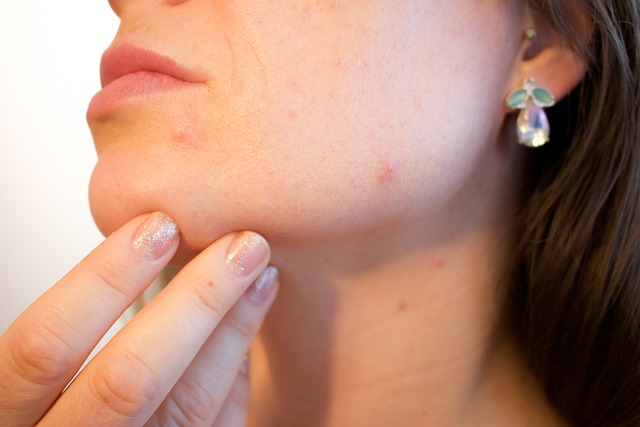
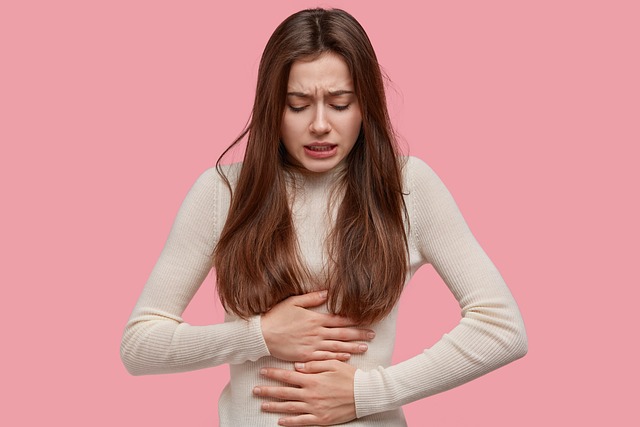
© Copyright Kerryann's Beauty